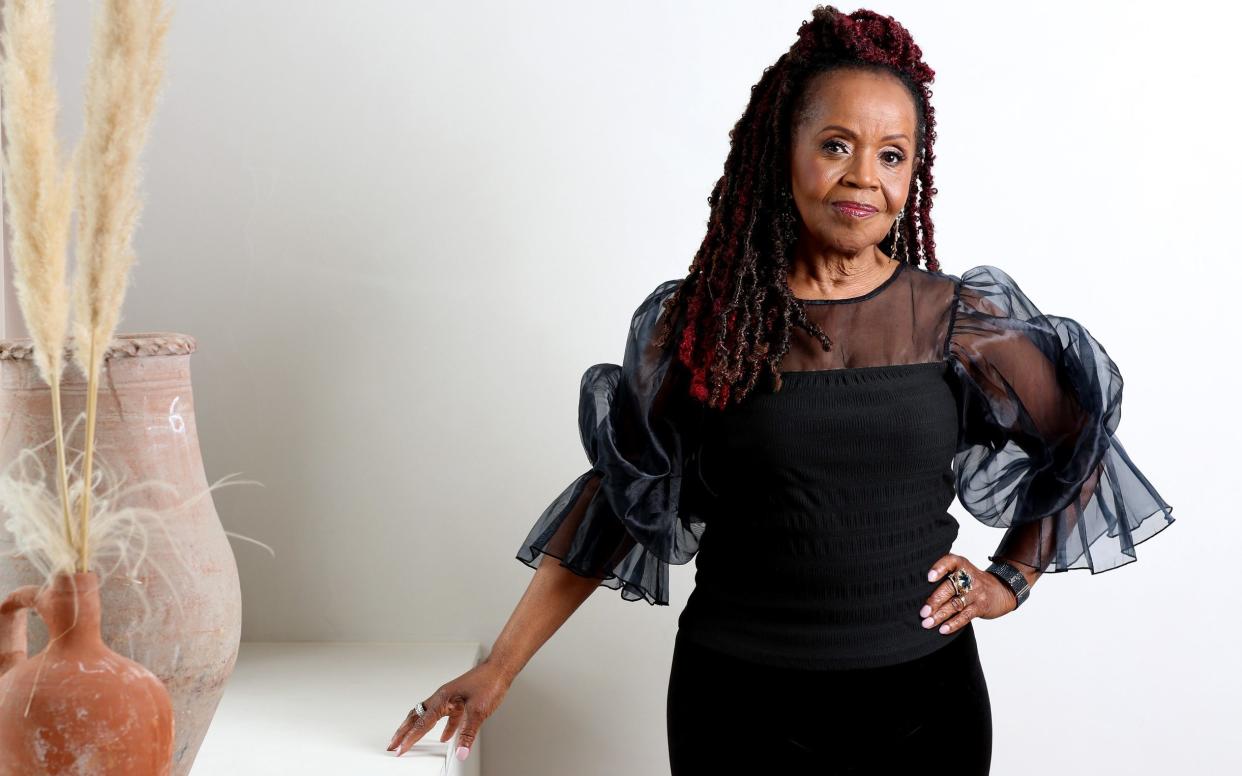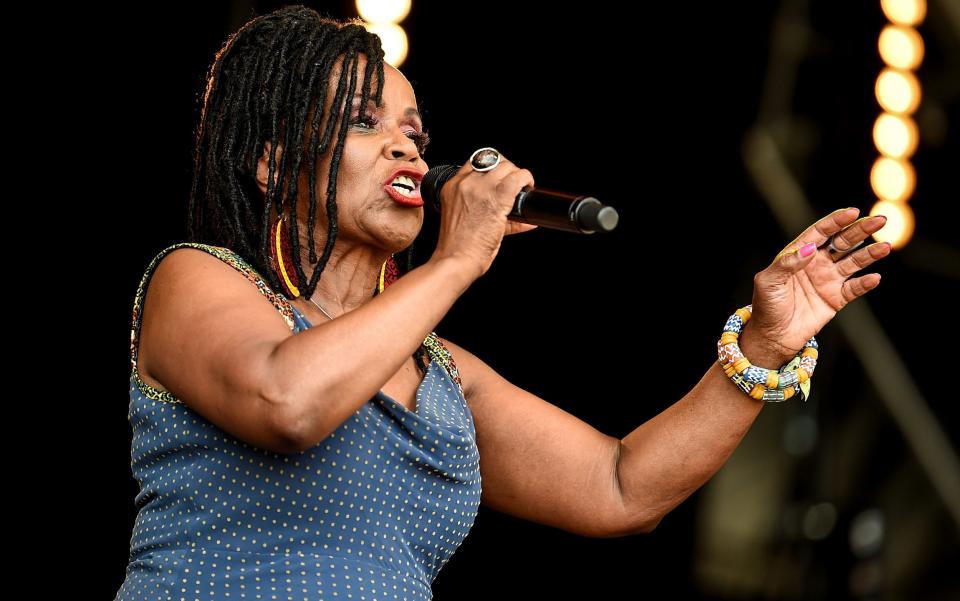Singer PP Arnold: ‘My accountant forgot to tell me about a meeting – so I went bankrupt’

PP Arnold (Patricia Ann Cole), 75, began her professional singing career at the age of 17 when she joined the Ike & Tina Turner Revue as a backing singer.
She has had a five-decade career working with stars including Rod Stewart, Eric Clapton and Paul Weller, with hits such as The First Cut Is the Deepest. She lives in London and Spain.
Did you grow up in poverty?
The media like to give the impression that everybody from South Central Los Angeles was poor, but my family was considered middle class. My father worked three jobs and often did overtime so we could afford a beautiful house and a brand-new Chevrolet.
After leaving the US army my dad trained as an upholsterer and took evening classes to get a business licence. He was hard-working, but regretted having six kids because it brought financial pressures.
Matters weren’t helped by the fact that my older brother, Ronnie, suffered a terrible accident, aged four, when a train rolled over his foot. His leg had to be amputated just below the knee. My parents had little medical insurance and no proper legal representation, so the railroad company all but turned a blind eye and paid out very little.
How did you break into the music business?
My brother Ronnie’s ex-girlfriend was dating a singer who had a little studio at the back of his house where I had recorded a session. When she got wind that Ike and Tina Turner needed new backing singers she persuaded me to secretly audition, even though I knew my husband, with whom I had two young children, would disapprove.
I got the gig, but when he found out he gave me a beating. The weekly salary I had been promised eventually persuaded him that it was a good thing.
Was Ike Turner a good employer?
No, life as an Ikette was hard. I was paid $250 a week on the road, but I had to pay my food and hotel costs out of this. I was also sending the bulk of my earnings, about $175, to my husband – $50 of which was for my mother and kids. If we weren’t touring we were paid just $30 a gig. Ike threatened to fine us for everything from lateness to singing out of tune. Once he even fined me $25 for having a run in my stockings.
My husband had agreed that we would save enough for a down payment on a house, but instead he blew my earnings on a sports car and rarely passed on any money to my mother. I left him when, after a drunken episode, he flew out of the kitchen swinging a butcher’s knife and threatened to cut my throat. I tore out of the apartment and called the police.
How did you launch your solo career?
In 1966 the Revue flew to Britain to support the Rolling Stones. Mick Jagger, whom I had started dating, told me that the Stones’ manager, Andrew Loog Oldham, wanted me to stay in England to record for his independent label, Immediate Records, with Mick as a contributing producer.
I agreed, but I took a gamble because I hadn’t signed a contract. I wish Mick had helped me more with the business side, but he didn’t know how naive I was. Immediate had full control of production, publishing and my career. Advances were never mentioned.

Did your 1960s chart success earn you riches?
Shortly after I signed to Immediate, the Stones split with Andrew, but Mick advised me to stay on. I had two chart hits – The First Cut Is the Deepest, which made it into the UK Top 20 in 1967, and Angel of the Morning (1968) – but I never earned royalties because Immediate went bankrupt in 1970.
I later signed with the Robert Stigwood Organisation, whose roster included the Bee Gees and Eric Clapton. I released two singles produced by Barry Gibb, but the planned album with him was never completed because Robert pulled the plug on the sessions.
Later I toured with Eric Clapton and recorded tracks with him, but again Robert pulled the plug. In both cases he didn’t think the tracks were commercial enough. The master tapes wound up on the shelf for 50 years.
Have you ever struggled to pay the bills?
The 1970s were a tough decade for me. I didn’t have a label or any support system behind me and in 1977 I lost my daughter in a car accident. They were lost years and I withdrew from public life. Having another child with Calvin “Fuzzy” Samuel, the bassist with Crosby, Stills, Nash & Young, saved me, and in the early 1980s I started performing again.
How did you reinvent yourself?
I moved into musical theatre. In 1984 I played Belle, the sleeping car, in the Andrew Lloyd Webber musical Starlight Express. I was paid well, but at the end of the first year they sacked all the principal artists to save money. Thankfully I’d also signed a lucrative deal with Ten Records, for which I received a £10,000 advance.
Then in 1986 I featured prominently on Peter Gabriel’s worldwide hit Sledgehammer. That same year, however, my legs were badly injured in a car accident. I went on tour with Billy Ocean, but was forced to quit so I could focus on getting better. I managed to survive by doing advertising jingles and session work. In 1988 I collaborated with the Beatmasters on their retro acid house hit Burn It Up. I also collaborated with the KLF and my vocal featured on their 1991 worldwide hit 3AM Eternal.
They had agreed to pay me 5pc of the royalties but conveniently forgot about it. I couldn’t afford to sue them.

What has been your hardest time financially?
In 1992 my accountants failed to tell me about an important meeting I should have attended to sort out a £7,000 VAT bill. I was made bankrupt and lost my house.
What has been your best-paid job?
From 1999 until 2008 I toured with Roger Waters. He paid me well, enabling me to buy a house by the sea in southern Spain. I still own the property, but I’m currently renting in London because Brexit has restricted my freedom of movement.
Do you intend to retire?
Why would I? I stay in good vocal shape and I love what I do. People still love to hear me sing.
PP Arnold’s book ‘Soul Survivor: The Autobiography’ is published by Nine Eight Books.

 Yahoo News
Yahoo News 
